Is an “Organic” Label the Kiss of Death?
According to Mintel research, more than half of U.S. consumers think organic labeling is simply an excuse to charge more, and more than a third regard “organic” as a marketing term with no real value or definition.
Organics would seem tailor-made for shoppers seeking foods and beverages that are healthier for them, their families and the planet, but new research from Mintel reveals that Americans appear confused about the benefits of organics, with many perceiving the organic label as nothing more than an excuse to sell products at a premium.
Overall, the biggest selling point for organics is the perception that the products are healthier (72%)—much more so than any environmental or ethical reason. In fact, only 29% of consumers recognize that organic products are highly regulated, and 51% agree that labeling something as organic is an excuse to charge more. While sales of organic products are on the rise, actual consumer penetration has plateaued.
Organics Are Healthy, Right?
Overall, 72% of U.S. consumers purchase organic food and/or beverages for health or nutrition reasons, while slightly fewer (69%) factor environmental or ethical reasons in their purchase decision.
When looking specifically at female shoppers, this consumer group appears to choose products that avoid certain characteristics: 43% purchase them because they do not contain unnecessary ingredients or chemicals, and the same percentage do so to avoid food made with pesticides.

 An understanding of “putting in place” is one of the most important skills for culinary students to learn and practice in becoming professionals. Says Dr. Mayo, proper mise en place is actually composed of three parts—all of which do double duty in the kitchen and dining room.
An understanding of “putting in place” is one of the most important skills for culinary students to learn and practice in becoming professionals. Says Dr. Mayo, proper mise en place is actually composed of three parts—all of which do double duty in the kitchen and dining room. Telling people to be the best they can be allows them to quit striving whenever they want. To be the best in your field, however, one must always strive for the next level. This is the generations-long American Dream that we, as teachers, offer our students.
Telling people to be the best they can be allows them to quit striving whenever they want. To be the best in your field, however, one must always strive for the next level. This is the generations-long American Dream that we, as teachers, offer our students.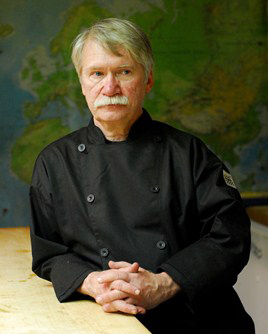 What can the graduate do for the school? Says Chef Sorgule, the proper question should be, What can the school do for the graduate?
What can the graduate do for the school? Says Chef Sorgule, the proper question should be, What can the school do for the graduate?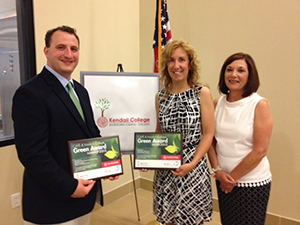 High-school culinary-arts programs in Grand Rapids, Mich., and Batavia, N.Y., earn honors for exemplary practices in—and innovative teaching of—ecological sustainability.
High-school culinary-arts programs in Grand Rapids, Mich., and Batavia, N.Y., earn honors for exemplary practices in—and innovative teaching of—ecological sustainability.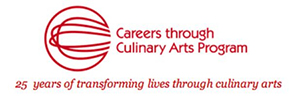 On Monday, May 11, fine-dining connoisseurs are invited to enjoy the modern French cuisine of Mélisse (
On Monday, May 11, fine-dining connoisseurs are invited to enjoy the modern French cuisine of Mélisse (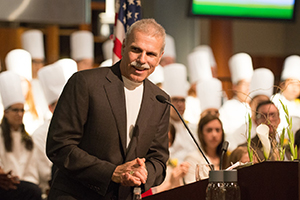 Peter “Pete” Mondavi, Jr., scion of one of Napa Valley’s leading winemaking families, was keynote speaker at the March 27, 2015, graduation ceremony for the Accelerated Wine and Beverage and Accelerated Culinary Arts certificate programs at The Culinary Institute of America at Greystone in St. Helena, Calif. Mondavi advised graduates to use their newly honed skills to help people’s dining experiences become a break from the fast-paced cell-phone world.
Peter “Pete” Mondavi, Jr., scion of one of Napa Valley’s leading winemaking families, was keynote speaker at the March 27, 2015, graduation ceremony for the Accelerated Wine and Beverage and Accelerated Culinary Arts certificate programs at The Culinary Institute of America at Greystone in St. Helena, Calif. Mondavi advised graduates to use their newly honed skills to help people’s dining experiences become a break from the fast-paced cell-phone world.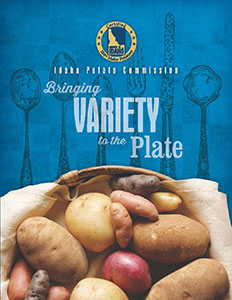 Idaho® potatoes—the term refers to their source of origin—are renowned for quality and reliability in all 50 states. While most consumers and foodservice operators associate the Idaho trademark with russet potatoes, Idaho growers are seeding fields with new varieties to meet a burgeoning demand for reds, yellows and other niche varietal potatoes.
Idaho® potatoes—the term refers to their source of origin—are renowned for quality and reliability in all 50 states. While most consumers and foodservice operators associate the Idaho trademark with russet potatoes, Idaho growers are seeding fields with new varieties to meet a burgeoning demand for reds, yellows and other niche varietal potatoes.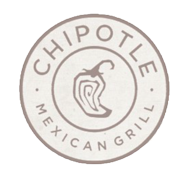 Washington, D.C.-based Green America, a national nonprofit organization working to create a green economy, issued the following statement on April 27 in response to Denver-based ChipotleMexican Grill’sannouncement of removing GMOs from its foods:
Washington, D.C.-based Green America, a national nonprofit organization working to create a green economy, issued the following statement on April 27 in response to Denver-based ChipotleMexican Grill’sannouncement of removing GMOs from its foods: Say a menu item doesn’t sell. Is it overpriced, poorly described, not satisfying to the customer or a combination of these? To understand the basics of restaurant-performance management systems, here are three key teachings that would be part of any 101-level course on the topic.
Say a menu item doesn’t sell. Is it overpriced, poorly described, not satisfying to the customer or a combination of these? To understand the basics of restaurant-performance management systems, here are three key teachings that would be part of any 101-level course on the topic.